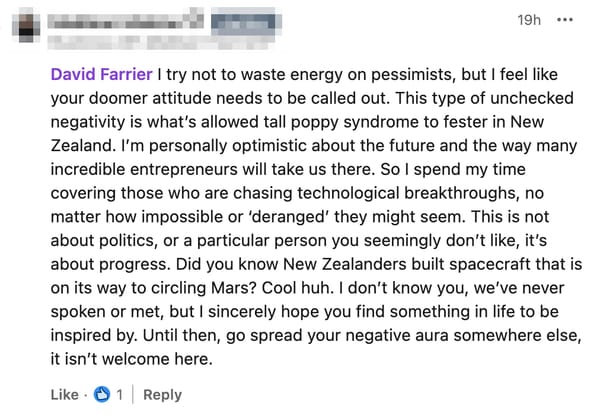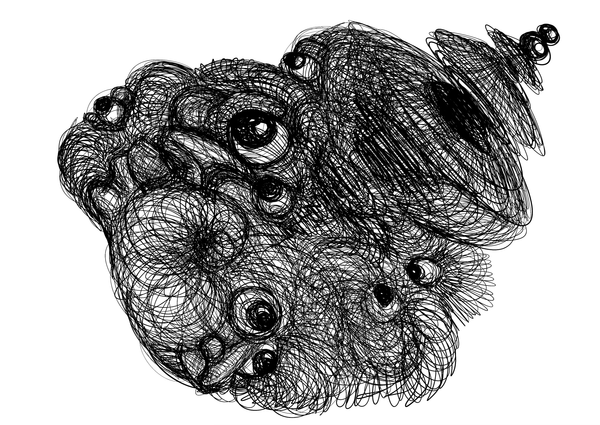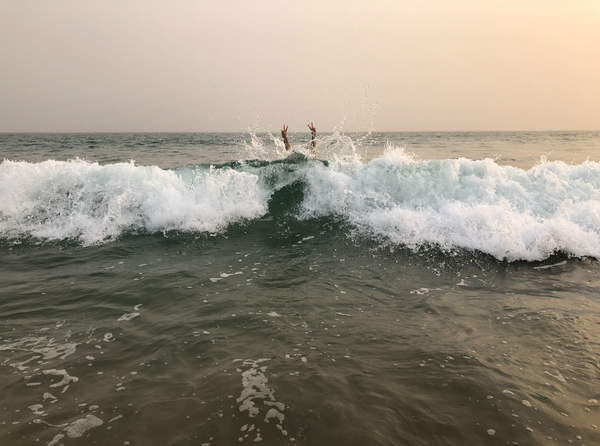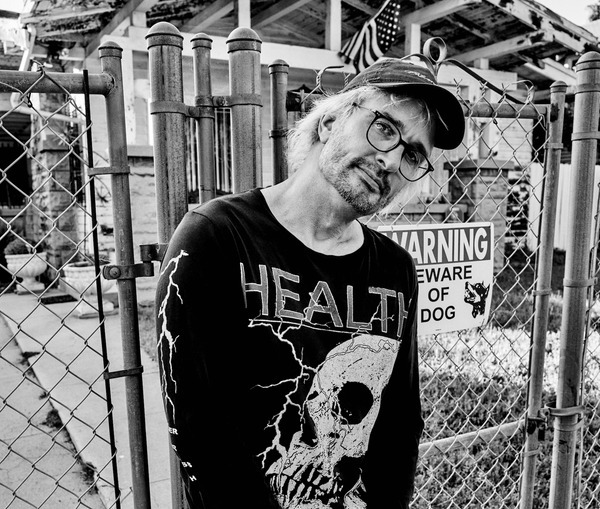The Super Recognisers
I thought it was a joke after my face-blindness piece. Turns out it was real.
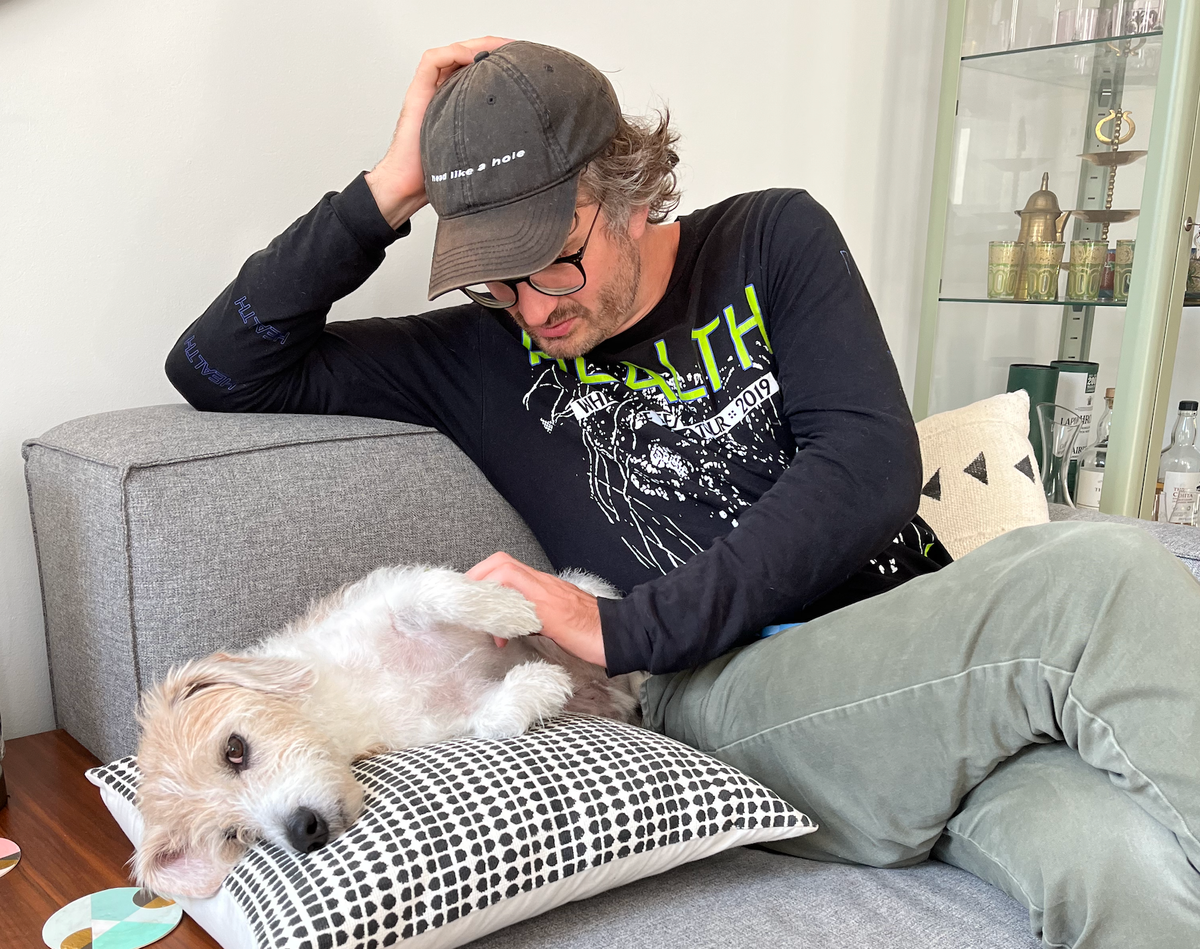
Hi,
I hope your week has been an outstanding success so far. Still a few days left, so if not — don’t panic. It’s Flightless Bird day, so there’s a new episode out now about the American healthcare system. Gulp.
I’ve been spending a lot of time with my friend’s dog Buddy. This is Buddy:

He’s frustratingly smart, and by smart I mean “manipulative”. If he wants attention, he’ll purposefully nudge his ball into a location he’s not able to retrieve it from: Usually under a cabinet, a bed, or a couch. Then he’ll sit there and emit the most pathetic, heart-wrenching whine. You fetch the ball like a chump, and he learns (yet again) that he’s in control of the entire situation.
I wanted to update you a little on the face blindness newsletter I sent out a few weeks ago. I’ve heard from so many people about this — like Lauren, who finally understood her husband’s behaviour:
“I just experienced a real lightbulb moment. I think my partner may have this. In our many years together I have watched him struggle to remember faces and names so many times. I have seen the complete flash of blankness and then concentration on his face as someone greets him who he does know, and he knows he knows (if that makes sense). People have said he’s arrogant and rude because of his struggles in this regard, and claim that he ‘just couldn’t be bothered’ or ‘doesn’t care about people’. That isn’t the case at all.”
As for me, I now have a friend who picks me up and delights in texting their arrival: “Blue car, female, black hair, yellow top, glasses.”
I also heard from someone who has the opposite problem, and refers to themselves as a “super recogniser”. We’ll get to that soon.
But first, I checked in with Dr Tirta Susilo at Victoria University in New Zealand, who runs Susilo Labs — a vision and cognition group that studies visual perception, with a focus on face and object perception.
I wanted to dig a little deeper into my “why can’t I recognise a human face” problem.
A brief conversation with Dr Tirta Susilo about the finer points of face blindness:
So what is face blindness? I have heard it called facial aphasia and prosopagnosia — is this all the same thing?
Prosopagnosia is a condition defined by severe difficulties at recognising faces despite otherwise normal vision, intellect, and memory.
Prosopagnosia is also known as facial agnosia, facial aphasia, and face blindness — although the last term can be misleading, because people with prosopagnosia are not blind when looking at faces. They can see the face and locate the eyes, nose, and mouth within the face. It’s just they can’t recognise the identity of the person from the face.
To clarify: It’s a real thing?
Prosopagnosia is as real as autism, dyslexia, dyscalculia, and other similar conditions are real. All of these conditions can have a negative impact on the lives of people who have them.
Okay, so I have two main problems. One, if I have recently met someone, and I go to remember them, their face just isn’t there. I think back to them sitting across from me last time I met them, and the face is blank. The only way I can get the face is to think really hard about maybe an Instagram photo I have seen of them. Then it might come.
This sounds more like difficulties imagining faces, which might relate to aphantasia, a condition characterised by difficulties with visual imagery. People with aphantasia have trouble visualising any images in their mind.
I’ve heard anecdotes about aphantasia that is selective to faces. People who have it claim they can bring to mind images of objects and places but not faces, but there’s no hard data on this yet.
Secondly — if I see someone I am not expecting to see, I just don't clock them. If they recognise me and give me a giant smile and wave, I will look at them and be completely bank — before the penny hopefully drops within two to five seconds. The other day I was on a walk and my close friend I see all the time waved at me, and it was about two seconds before I got it. It was their hat that gave it away, more than the face. I am like a detective having to think on my feet very quickly. A very dumb detective.
Is this facial aphasia? The thing Brad Pitt has?
Yes, this sounds like a very mild prosopagnosia. Prosopagnosia varies in severity. Some can recognise faces but they’re very slow at it, and they frequently make mistakes. Others can’t even recognise their own face in a mirror or a photo.
People with prosopagnosia tend to recognise others using non-facial cues like hat and voice, so this fits your experience.
How did I get this way? Was I starved of oxygen in the womb? Dropped? Was I born not having this condition and developed it later? I should add that my memory is bad, too. I forgot I’d met Rob Schneider until I saw a photo of us together.
There are two types of prosopagnosia. Acquired prosopagnosia occurs following a specific brain damage. This is very rare, and people who have it are fully aware of it because they know that they have lost their face recognition skills.
Much more common is developmental or congenital prosopagnosia, which occurs without any history of brain injury. We don’t know what exactly causes developmental prosopagnosia, but it’s likely to do with atypical development of brain mechanisms for face recognition.
People with developmental issues are often aware that they have had trouble recognising faces for as long as they can remember.
How common is all of this? Do we know?
This is a tricky issue because developmental prosopagnosia is diagnosed based on statistical scores that can vary depending on criteria. Old estimates suggest that prosopagnosia may affect up to 2% of people with varying severity, but these numbers need updating.
Is this genetic? I have heard from some readers whose whole family has this.
Yes. Developmental prosopagnosia tends to run in families, which squares up with twin studies showing that face recognition skills are highly heritable.
Is there a cure? How can I make it so I am not always insulting my poor friends when I see them in the world and for a moment look at them like I’ve never seen them before in my life?
Unfortunately, no. But several labs including mine are working on it, so hopefully one day we’ll have a cure.
Right now, the best move is to be upfront about it and tell your friends that you have trouble recognising faces. Many people with developmental prosopagnosia told me this approach works best. Oliver Sacks used to ask his party guests to wear name tags so he could recognise them.
Thanks, doctor.
Meet the Super Recognisers:
Tirta Susilo emailed me later in the day, saying “if your readers think they might have prosopagnosia, they can go here and register in our database. We will be in touch for testing and research.”
Do with that what you will.
The other thing that happened was that I heard from a woman who claims to be a super recogniser.
“I’m a freelance security consultant and certified Super Recogniser” announced Rosie. My jaw dropped.
“Depending on the client, my work can be quite varied. I’m most experienced working with police forces - predominantly managing and reviewing CCTV footage for murder investigations.
I’ve taken part in international expos; a government hackathon; web-sleuthing; compared faces for relatives of missing people; worked with major crime units across the UK and middle east; and watch-lists for covert jobs at football matches and Wimbledon Tennis Championships.”
I was convinced Rosie was winding me up — and still sort of am, to be honest. But look, there’s a Wikipedia page, a BBC piece, and a Guardian story announcing “Super recognisers: the people who never forget a face.”
There’s even a few X-Men-esque groups of super recognisers. One is based out of London — led not by Professor Charles Xavier, but by Professor Josh P Davis. Then there’s Super Recognisers International, which is more like the Avengers of Super Recognisers, I suppose.

This is the group Rosie told me she was a part of:
“At the time the company was in its infancy; started by the founder of the New Scotland Yard Super Recognisers unit, and a fellow SR who’d worked in the unit.
At the time over six million people had taken the University of Greenwich’s super recogniser tests on their website, and Super Recognisers International had invited the top 20 best scorers to attend their training course.
Turns out we were the top 0.00033% of those six million. We spent four days listening to the research behind super recognisers, learning behavioural analysis and live deployment techniques, and taking tests before receiving certification that we were indeed super recognisers.”
Since then, Rosie tells me she’s consulted on everything from AI to law enforcement:
“I selected a dream-team of Super Recognisers to review CCTV for a few Met Police jobs that I was managing, and they found evidence that proved a murder was premeditated.”
As I said — holy shit.
And I realise that as I walk around during my day, fully unaware of whether I know the various people passing me by, Rosie is stuck in a whole other nightmare: She’s recognising too many.
So, what do you have? What do you want? Super recognition, prosopagnosia, or something comfortably in-between? Are you better off being Brad Pitt, or Professor X?
David.

